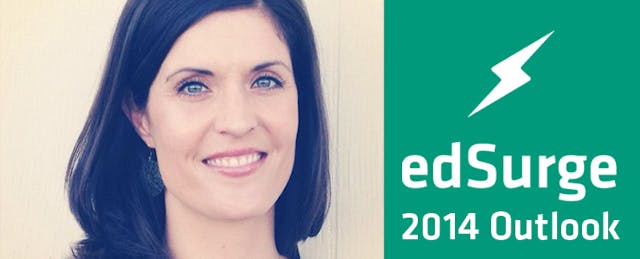The start of a new year provides the opportunity to reflect on what we’ve accomplished and speculate a bit about the year to come. Here are a few of my predictions of 2014 might bring to education:
1. Gamification
I hope there will be more of a movement for gaming theory and approaches to seriously make their way into mainstream education. The instant feedback and adaptive nature of gaming make it ripe for the world of applied learning. While educators haven’t always been receptive to gaming as an instructional strategy (instead preferring that students play games outside of school), I hope educators will begin to see the value in immersing students in gaming for educational purposes.
2. Integrated Approach to Teaching Coding
All the recent attention to the importance of teaching coding to students is exciting, but I worry about calling out yet another skill that will end up being taught in isolation. I hope we will take a more integrated approach to how we teach coding and support teachers in learning foundational skills necessary to guide students in this area. I appreciated Sheena Vaidyanathan’s op-ed on this subject, entitled “We Need Coding in Schools, but Where are the Teachers?”
This year, let’s support teachers in learning new skills. Better yet, let’s support them in understanding how to move out of their comfort zone in order to facilitate better student learning.
3. Customized Teacher Learning Opportunities
With more and more teachers taking learning into their own hands, whether it be through EdCamps or twitter chats, online teacher learning is still sorely lacking. This has to change. As our workforce gets younger, there will be a greater demand for high quality professional development materials that are both customizable and personalized to meet teachers where they are in developing their teaching practice.
4. Edtech Efficiency at the Classroom, School & District Level
While many efficiency tools have already been developed and are readily available, I am amazed at how inefficient many of us still are in our day-to-day work. I’d like to see educators take the time to think through efficiency. Not sure where to begin? Take a look at the amazing work of Andrew Stillman, and make use of Formmule, Autocrat and Doctopus to automate work where possible. Making use of edtech tools for efficiency can actually free up time to spend on more important aspects of teaching and learning.
Whatever 2014 may bring, I hope we ground ourselves in what is best for students. While edtech opens many possibilities, not every new “innovative” edtech tool results in better learning outcomes for students. Let’s take the time to truly investigate new practices and find ways to honor student choice and voice in the process.


